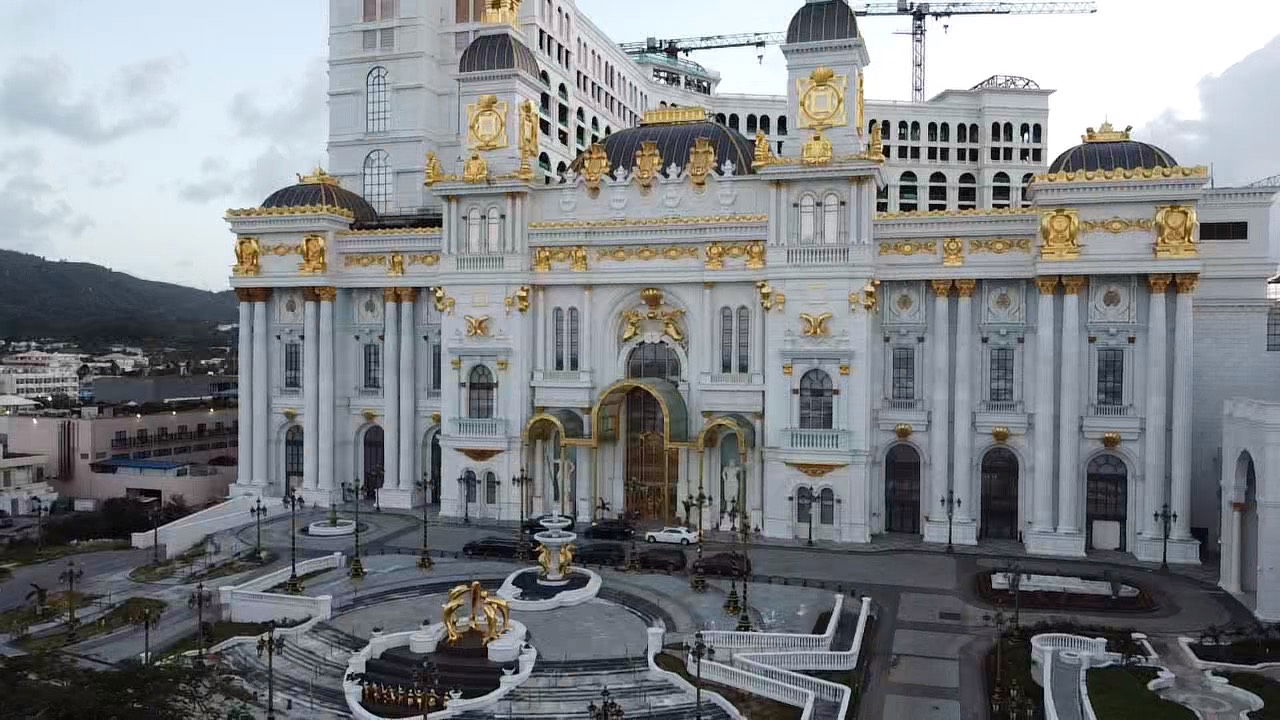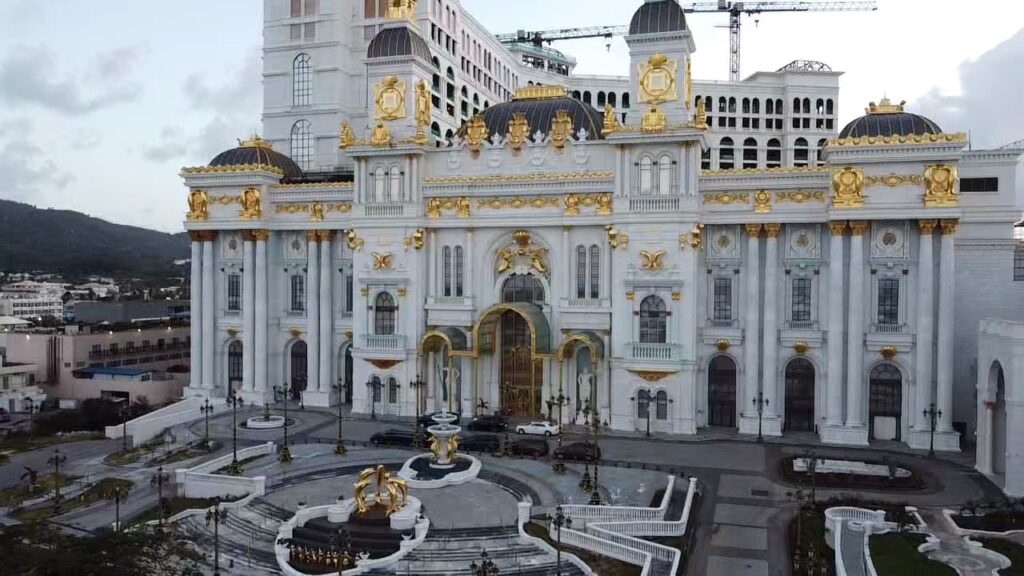IMPERIAL Pacific International has filed a civil complaint against the Commonwealth Casino Commission in federal court alleging breach of the casino license agreement or CLA.
IPI, through attorneys Stephen Nutting and Michael Chen, sued CCC for unconstitutional impairment of contract and violation of the contracts clause of the U.S. and CNMI constitutions.
The lawsuit also alleges violation of the takings clause, and violation of the due process clauses of the U.S. Constitution.
IPI, which demands a jury trial, wants the District Court for the NMI to issue a declaration stating that IPl is exempt from or not subject to the terms of the regulatory fee because of the express terms of the CLA entered into by IPI and CNMI prior to the enactment of the annual regulatory fee statute.
IPI also wants the court to issue an injunction against CCC, preventing the enforcement of the regulatory fee statute and collection of the annual regulatory fee against IPI, or mandating that CCC exempt or except IPI from the annual regulatory fee, given the express terms of the CLA entered into by IPl and CNMI prior to the enactment of the annual regulatory fee statute.
In addition, IPI requested the court to issue a declaration stating that the regulatory fee statute, as applied to IPl, is unconstitutional.
IPI likewise wants the court to order CCC to pay restitution for all the regulatory fees paid by IPI in the past.
Moreover, IPI is asking for a court order directing CCC to vacate, nullify any and all adverse administrative decisions against IPI that were based upon the annual regulatory fee statute, including the imposition of fees, interests and penalties for failure to pay the annual regulatory fees; as well as the suspension of its license based upon the annual regulatory fee statute.
According to the complaint, CNMI and IPI had an existing contractual relationship that provides IPI with certain contractual and property rights to operate a casino in CNMI in exchange for substantial compensation to the CNMI.
Acting under color of Commonwealth law, CCC, as an agency of CNMI, has caused IPI to suffer a substantial deprivation of its contract rights in violation of the U.S. and Commonwealth constitutions, the lawsuit stated.
“The Regulatory Fee Statute imposed additional fees for doing business in CNMI, which constitutes a substantial and unconstitutional impairment of the CLA. IPI was and is still required by CCC to pay the $3 million annual regulatory fee as a prerequisite to exercising its existing contractual and property rights set forth explicitly in the CLA, rights for which it already has compensated the Commonwealth,” the lawsuit stated.
In essence, CCC is double-charging IPI, the lawsuit added.
“The annual regulatory fees are substantial, and the impairment to the express and implied terms of the CLA is direct. The later imposed regulatory fees effectively nullify the explicit terms of the CLA and impose completely unexpected and new liabilities and limitations on the operation of IPI,” the lawsuit stated.
Furthermore, “CCC requires IPI to pay excessive and unlawful fees pursuant to the later enacted regulatory fee statute without formal condemnation, as a condition for IPI to operate its business under the CLA despite the CLA already expressly providing for an annual license fee and no such regulatory fee, and further, despite IPI being legally prohibited from operating the casino during the pandemic and when its license was suspended.”
The CNMI is “thereby permanently, directly and substantially interfering with IPI’s use and enjoyment of its contractual and property rights, amounting to an unauthorized taking without just compensation,” the lawsuit stated.
It added that the actions of the CNMI in enacting and CCC in implementing the annual regulatory fee were and are arbitrary, capricious and unreasonable in the following respects, among others:
(a) The annual regulatory fees have the effect of circumventing the clear and unambiguous terms of the CLA, which provides for the payment of a specified business license fee as compensation for the right and privilege obtained by IPI for operating a casino in the CNMI;
(b) The annual regulatory fee imposed by the CNMI and as implemented by CCC, by its own explicit language, bears no reasonable relationship to the true costs of regulating the casino industry;
(c) The annual regulatory fees imposed by the CNMI and as implemented by CCC, consistently exceeded the actual costs of the operation of CCC.
On Aug. 12, 2014, IPI entered into a casino license agreement with the then-CNMI governor and the Commonwealth Lottery Commission.
Under the CLA, among other obligations, IPI would pay a $15 million annual casino license fee.
IPI said it dutifully paid the annual license fee each year between 2014 and 2019.
On Dec. 4, 2015, the CNMI promulgated Public Law 19-24, which imposes a new obligation on IPI to pay CCC an annual “casino regulatory fee” of $3 million on or before Oct. 1 of each year beginning Oct. 1, 2015.
That fee is due to CCC “regardless of the actual costs incurred by the [CCC],” the lawsuit stated.
IPI said it dutifully paid the casino regulator Fee each year from 2015 through 2019.
Before Public Law 19-24 was signed by then-acting Gov. Ralph DLG Torres, the CNMI Legislature’s statutory language provided for a “nonrefundable credit” to the $3 million regulatory fee.
The nonrefundable credit would allow IPI to apply the fees paid to CCC as a credit against taxes on general revenue as imposed by 4 C.M.C. Section 1301. The acting governor vetoed the provision of “nonrefundable credit” with the stated reason that, “the cost of regulating casino gaming activities on Saipan are to be paid in full by the licensee.
Due to a number of force majeure events and the suspension of the casino license by CCC, IPI said it has been unable to make the payment for the annual regulatory fee since Oct.1, 2020.
On Dec. 1, 2023, CCC issued a demand of $17.625 million related to the regulatory fees, as well as fines and penalties, as a prerequisite for the IPI license being restored and for IPI to resume its business in the CNMI.












